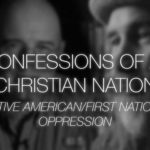We run our website the way we wished the whole internet worked: we provide high quality original content with no ads. We are funded solely by your direct support. Please consider supporting this project.
Greg on Politics
I recently agreed to a written interview with a delightful Christian student of politics. Given the nature of her questions, I’m not sure my responses were quite what she expected. I thought some of you might find it interesting, if not a little amusing (or maybe a little aggravating) even though this last round of voting is over. Another election season is always just around the corner.
Is exercising the right to vote important to you?
Absolutely. We vote our values with every decision we make, by how we interact with people, and by how we spend our time and money. It’s absolutely crucial that kingdom people are always voting “yes” to the kingdom. But if you mean do I think it’s important to voice your opinion about what government should and should not do every couple of years, the answer is ‘not so much.’
Why do you hold this belief (these beliefs)?
The reason I put no value on voting in politics is because, as I read the New Testament, followers of Jesus are to see themselves as missionaries from God’s country (Phil 3:20), stationed in a foreign land (I Pet 1:17, 2:11), serving a different king and kingdom, with strict orders not to get involved in “civilian affairs” (I Tim.2:4). All our trust is to be in our king and his kingdom, which alone holds the solution to the world’s problems. Also, I find no precedent in the life of Jesus or anywhere in the NT for trying to advise Caesar’s regime and how he can do things better.
If you do vote, do you typically reside within a certain political party or is your vote dependent on the candidate and his/her platform?
I vote “yes” to the kingdom by choosing not to vote on the politics of this land, though I am not saying other kingdom people shouldn’t vote. Everyone has to follow what the Spirit allows and forbids them to do.
What (if anything) makes America’s voting process unique?
Well, compared to some other countries, our process is unique in that people don’t have to fear for their lives engaging in it. On the flip side, I think the American process has become increasingly unique in that, at least at a national level, the options people have to vote for have been largely bought and paid for by special interest groups and individuals with enormous amounts of money. No one could afford to campaign for a national office these days without the enormous funds that these individuals and groups (who can now remain anonymous) supply.
Do your religious convictions impact your political views in any way(s)?
Totally!
If so, how?
My convictions lead me to place zero trust in the world’s political system. But that doesn’t mean I’m not political. A “political” issue is any issue that concerns the “polis” (people-group; city-state). Jesus made an incredible political impact not by trying to tweak the version of the kingdom of the world that ruled his land, but simply by how he lived, loved and was willing to suffer. THAT is how I believe people who live under the reign of God are to be “ political.” Also, it’s worth noting that Jesus was offered all the authority of all the kingdoms of the world (Lk 4:5-7), but he refused the offer, choosing instead to change the world by sacrificing his life. So too, I believe we are to resist the temptation to grab onto worldly power and to instead believe that it’s our sacrificial lives that God will use to ultimately transform our culture and the world.
What do you understand Scripture to say about voting/government involvement?
As I said, I see absolutely no precedent or warrant in the NT for followers of Jesus to be invested in trying to enforce their ideas on others through the power of a vote. Our whole allegiance is to be to our king and his kingdom, for we “cannot serve two masters” (Mt 6:24;Lk 16:13). This means we should have no allegiance to any earthly king, any worldly government, and any earthly nation. Moreover, history unambiguously demonstrates that whenever Christians have had divided loyalties, it has been disastrous both for the church and state.
What do you have to say in response to people who contend that every single vote matters?
I politely smile. But if they are kingdom people, I will encourage them to consider that the way followers of Jesus are to “vote” is not by expression our opinion about what Caesar should do once every couple of years, but by how we sacrifice for others to manifest the love of God day by day. And, if our total hope for the world is in Jesus and his kingdom, as it ought to be, then none of our hope should be in Caesar and his kingdom, whatever version happens to be in place. So why would we think every single vote for a kingdom in which we have no hope “matters”? In my opinion, the “every vote matters” slogan is just one example of the feel-good mantras that all cultures indoctrinate their people with and rally around every now and then.
What do you have to say in response to those who claim that voting is our “civic duty” as responsible adult American citizens?
I say that my duty as a citizen of the kingdom of God (Phil 3:20) trumps whatever “civic duty” my culture wants to place on me. Indeed, as a citizen of a kingdom that is “not of this world” (Jn 18:36), I am a “foreigner” in this land (I Pet 1:17, 2:11), so the “civic duties” of the land in which I’m stationed don’t apply.
Many assert that voting is a way for Christians to care for the widow and orphan. What are your thoughts on this?
Expressing an opinion about what government should do once every couple of years is a “token” way to care for the widow, orphan, poor and everyone else. People do their “civic duty” and can go back to their comfortable lives feeling good that they’ve “cared for” these folks because they had an opinion about how Caesar should care for these folks. I’m obviously not saying that all voters live this way, but the illusion that voting is the primary way to care for the needy easily falls into this trap. The distinct kingdom way of caring for the widow, orphan, poor, oppressed, imprisoned, etc… is to actually care for them, which means we do something to help them. We sacrifice of our lives, time and resources to make a difference, and in this way the glory goes to Christ rather than to Caesar, which should be our only concern.
What suggestions (if any) do you have for young voters?
Think deeply about what it means to be a follower of Jesus and whether or not you should be having any allegiance to the politics of this world.
What recommendations do you have for individuals trying to decipher their political views apart from their parents’?
Think deeply about what it means to be a follower of Jesus and whether or not you should be having any allegiance to the politics of this world.
Any final thoughts about how Christians should get involved in politics?
Think deeply about what it means to be a follower of Jesus and whether or not you should be having any allegiance to the politics of this world.
Category: General
Tags: Greg Boyd, Interview, Kingdom, Kingdom of this World, Politics, Voting
Topics: Ethical, Cultural and Political Issues
Related Reading

Watch Greg on CNN’s “God’s Warriors”
This video is a CNN.com video of Greg’s segment on God’s Warriors. Greg’s interview starts at 2:07. The following was taken from a post on Greg’s blog (August 24, 2007): Thoughts on “God’s Warriors” from “The Heretic” Hi folks, I and a bunch of friends just finished watching Christiane Amanpour’s CNN documentary entitled “God’s Christian…

5 Differences Between The Kingdom of God and the Kingdom of the World
Image by matthijs rouw via Flickr The kingdom of God looks and acts like Jesus Christ, like Calvary, like God’s eternal, triune love. It consists of people graciously embracing others and sacrificing themselves in service to others. It consists of people trusting and employing “power under” rather than “power over,” even when they, like Jesus, suffer because…

The Political Ambiguity of the Abortion Issue
José Manuel Ríos Valiente via Compfight. As an illustration of the ambiguity of the abortion question when approaching it from a political point of view, here’s an article portraying Obama as a hero of the pro-life movement. Our purpose for posting this isn’t to suggest that all of us should vote for Obama in light of…

Confessions of a Christian Nation: Native American/First Nations Oppression
In this third part of the Confessions series, Brian Zahnd, Brian McLaren, Bruxy Cavey and Greg Boyd confess the sins of the Christian church against the Native American and First Nations people. Thanks to Rex Harsin for his work and vision in producing this series.

